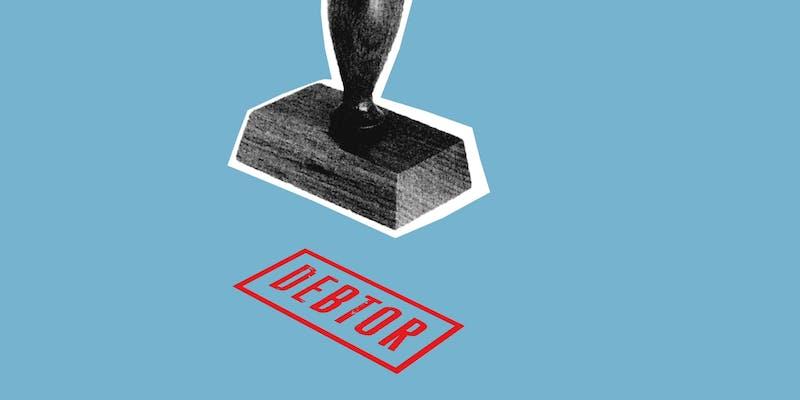Understanding the Importance of a Debt Validation Letter
Feb 23, 2024 By Susan Kelly
Collectors must send you a debt validation letter explaining your debt when it's due, and how to dispute it. A debt collection letter proves your financial responsibility to a collector. Debt collectors have a legal obligation to provide you with certain information whenever they approach you over potential debt:
- Your purportedly owing amount Your supposed creditor's name
- Despite your right to dispute the debt, the debt collector might infer it is valid if you do not dispute it within 30 days.
- If you file a written challenge, the debt collector must prove the debt.
Request that debt collectors provide written correspondence if they attempt to call you. Within five days after that, they must give you a letter validating your debt that includes all of that information.
Rights You Have Against Debt Collection

The debt validation letter gives you 30 days from the day you get the necessary information from the debt collector to challenge the debt if you think you don't owe it or the statute of limitations has passed. After you send a formal disagreement, debt collectors can't approach you in any way, shape, or form to attempt to collect payment; they must first provide written confirmation that you are due the money.
Make sure you submit your letter contesting a debt via certified mail and date it. This will provide a record of when the debt collector got it. In your letter of request for additional information, ask the debt collector why they think you owe, how long the obligation is, and whether the business is licensed to collect debt.
Another alternative is to advise the debt collector to only contact you via your attorney or to specify acceptable communication methods. If debt collectors harass you, you may report it to these authorities:
- Federal Trade Commission
- Consumer Financial Protection Bureau
- State Attorney General’s Office
Importance of Debt Validation Letters
Debt collection mistakes are prevalent, so these two letters are significant. Paying an amount you don't owe or accidentally resurrecting a debt over its statute of limitations are bad results. Avoid debt collection scams if you need a debt verification letter. Here is how to comprehend your validation of debt letter, what to perform, and where to discover examples of such letters.
Debt Validation Letter Include
The FDCPA requires debt collectors to provide a formal debt validation letter detailing the debt they are trying to collect. Within five days after first contact, it has to be delivered. Included in the debt verification letter are:
- Due Amount
- The debtor's identity who is requesting repayment.
- This notice asserts that the collector considers the debt legitimate until you respond to their claim within thirty days.
- It states that the debt collector will confirm the debt by mail if you write to dispute or seek further information within 30 days.
- A promise from the collector to provide information on the original creditor within 30 days of your request.
Get a validation notification the following time a debt collector contacts you if it takes more than ten days after the first contact. At this point, you should also inquire about the debt collector's postal address in case you want to obtain a letter verifying your debt.
Uses of Verification Letters

Upon reading the debt verification letter, you may have more inquiries than solutions. If that's the case, or if you were never notified of validation, you can seek a verification letter that validates your ownership of the debt. The two most common uses for verification letters are:
- When dealing with a demanding debt collector: If debt collectors don't have all the information they need, a debt verification letter might stop collection operations and maybe even discourage them.
- If you plan on paying the debt, Additional information may be required to settle the account and ensure that payment is sent to the correct collector for the proper debt.
Ignoring debt collection notifications is preferable to attracting additional attention to oneself with a verification letter if the debt is approaching its statute of limitations. You may find sample letters verifying debt at the Consumer Financial Protection Bureau. Requesting debt verification in a detailed and comprehensive manner is crucial.
In your validation of debt letter, you should inquire about:
- The collector's grounds for believing you owe: To show your liability, identify the first creditor, and get a copy of the contract.
- Ask the collector for the amount owed, when it was last paid, if the statute of limitations has expired, and a copy of the original creditor's billing account.
- Ask whether they have the proper licensing to collect debts in your state. This will give them the authority to collect the debt.
- To trace your correspondence with the debt collector, send this letter via certified mail with a return receipt.
- You have the right to seek a lot of information, but debt collectors must only reveal the original creditor, the amount outstanding, and the debtor's identification before continuing collection.
- That information may help you determine whether the debt is real if the deadline has gone, or if there was a mistake, such as an overstated amount.
Post-debt Verification Request
If you notify the debt collector in writing within 30 days of their first contact, they must cease collection efforts until they confirm account ownership. Even after 30 days, you can submit a verification letter; nevertheless, the collector might continue to pursue payment even while it reviews your letter. Your debt collector violates the Fair Debt Collection Practices Act by ignoring your verification letter or refusing validation. The CFPB, FTC, or state attorney general may receive complaints regarding such activity.
If the debt collector is correct in assessing your obligation, you can work out a payment arrangement or partial payment with them. A debt collection attorney can assist you if you are confused about your future steps and the sum is significant enough.

Triston Martin Feb 06, 2024
Want To Boost Your Profit? Explore These Best Short-Term Investments
84929

Susan Kelly Oct 23, 2023
What Is the Nasdaq Capital Market? What You Need To Know
79005

Susan Kelly Jan 29, 2024
Home Buying and Selling: The Role of Agent Referral Networks
20953

Susan Kelly Dec 24, 2023
The ATM Just Ate Your Deposit. Now What?
95495

Susan Kelly Feb 01, 2024
A Beginner's Guide to Corporate Bonds: Definitions and Purchase Tips
47845

Susan Kelly Oct 13, 2023
What Amount Should You Put Into A 401(k) Plan?
6214

Susan Kelly Dec 23, 2023
Here’s What You Can Do to Manage Your Roth IRA When Moving Overseas!
59650

Susan Kelly Dec 25, 2023
183-Day Rule Explained: Residency Determination and Case Study
32101